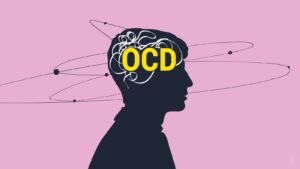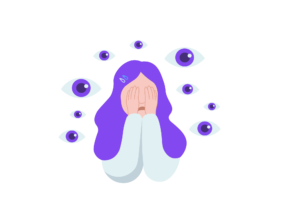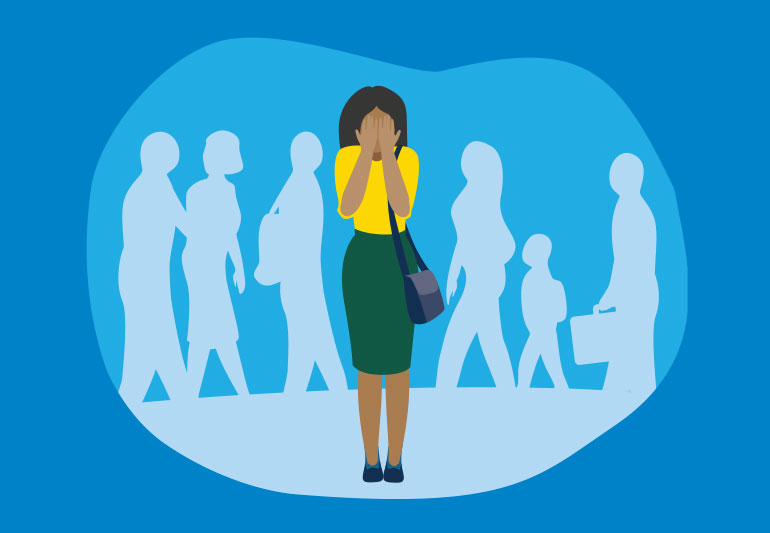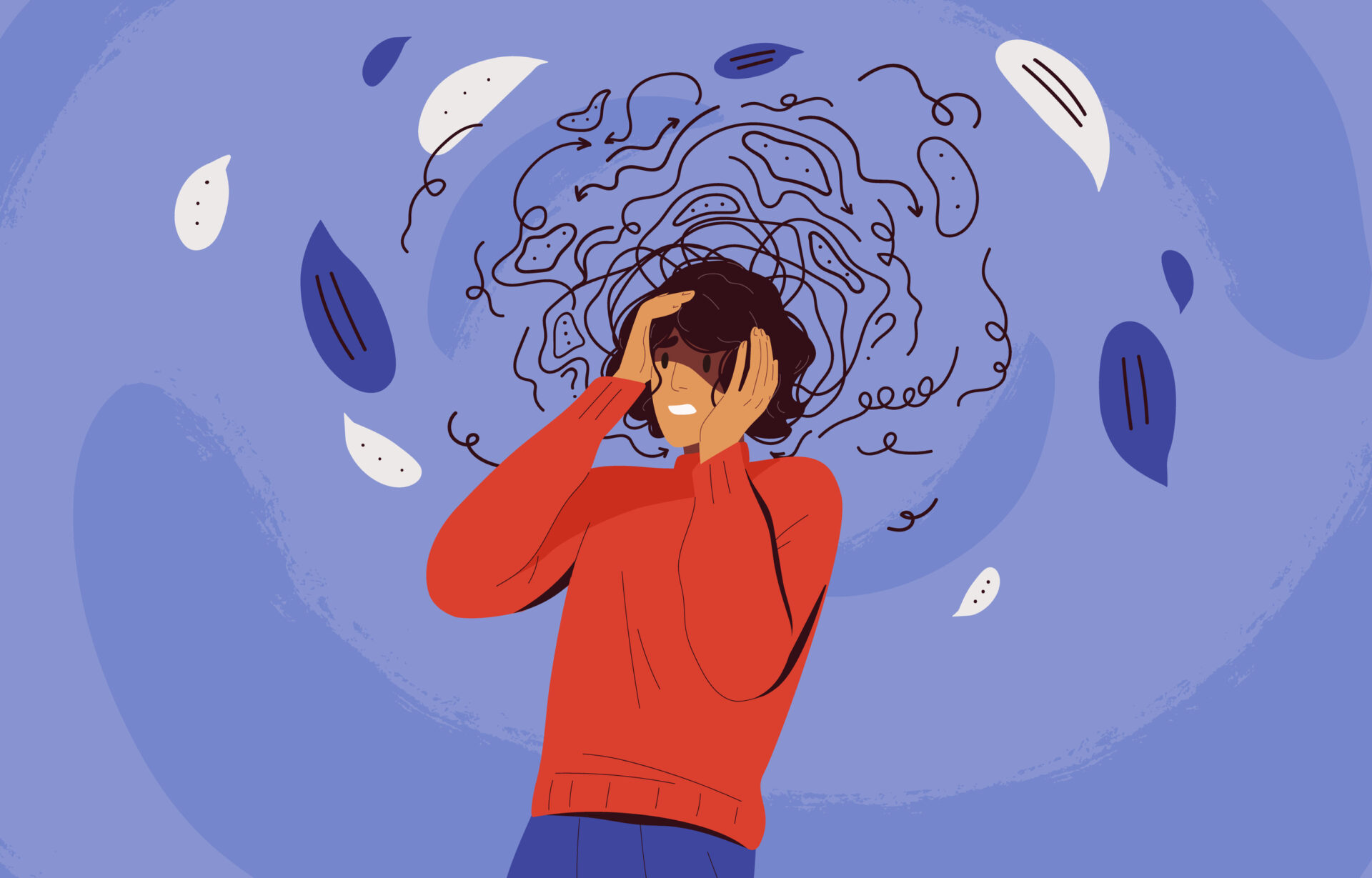Do you feel like you’re constantly worrying about what other people think of you? Do you have trouble making friends or enjoy socializing? If so, you may be suffering from OCD or social anxiety. These disorders can be extremely debilitating and make everyday life very difficult. However, there is hope. In this blog post, we will discuss the causes of OCD and social anxiety, as well as methods for overcoming your fears.
Contents
What Is OCD?
 OCD is an anxiety disorder that causes people to have unwanted and intrusive thoughts, feelings, images, and sensations (obsessions). People with OCD may also have difficulty tolerating uncertainty or not knowing what will happen next (doubt). These obsessions and doubts can lead to repetitive behaviors (compulsions) that the person feels they must do to reduce their anxiety.
OCD is an anxiety disorder that causes people to have unwanted and intrusive thoughts, feelings, images, and sensations (obsessions). People with OCD may also have difficulty tolerating uncertainty or not knowing what will happen next (doubt). These obsessions and doubts can lead to repetitive behaviors (compulsions) that the person feels they must do to reduce their anxiety.
OCD also means that people are aware that their obsessions and compulsions are unreasonable or excessive, but they still feel compelled to do them.
What Is Social Anxiety?

Social anxiety disorder (SAD) is an anxiety disorder in which a person has an intense fear of social situations. People with SAD may worry about being embarrassed, judged, or rejected in social situations. They may fear that they will say or do something that will be humiliating or embarrassing. SAD can cause people to avoid social situations and can make it difficult to function in everyday life. Also, people with SAD may have physical symptoms, such as sweating, racing heart, and trembling.
Relationship Between OCD And Social Anxiety

The relationship between OCD and social anxiety is a complicated one. Social anxiety can be both a cause and a symptom of OCD. People with OCD may develop social anxiety due to their obsessive thoughts and behaviors. For example, someone with OCD may become afraid of shaking hands because they are afraid of contracting germs. Alternatively, someone with social anxiety may develop OCD-like symptoms to control their fear of social situations.
The relationship between OCD and social anxiety can be challenging to understand. However, it is important to remember that both conditions are treatable. If you or someone you know is struggling with OCD or social anxiety, there are many resources available to help. People with these conditions can learn to manage their symptoms and live fulfilling lives with treatment. It may also be helpful to seek out support groups or therapy specifically for people with OCD or social anxiety. These groups can provide a safe and supportive space to share your experiences and learn from others who understand what you are going through.
Signs of OCD And Social Anxiety

There are many signs of OCD And social anxiety. Some people with OCD and social anxiety may have only one or two symptoms, while others may have many. The most common symptoms of OCD And social anxiety include:
- Excessive hand-washing
- Avoiding touching things for fear of contamination
- Constantly checking that doors are locked or appliances are turned off
- Arranging objects in a certain way or obsessively cleaning
- Repeating certain words or phrases over and over again
- Needing to know or remember things perfectly
- Intrusive, unwanted thoughts (obsessions)
- Extreme fear of being embarrassed in public
- Fear of being around people
- Difficulty making eye contact
These are some common symptoms, but it’s important to remember that everyone experiences OCD And this anxiety differently. Some people may only have a few symptoms, while others may experience all of them. If you’re unsure whether you or someone you know has OCD And this anxiety, it’s important to speak to a mental health professional.
Negative Impacts of OCD and Social Anxiety
There are many negative impacts of OCD and social anxiety. People with these disorders may have trouble keeping a job, maintaining relationships, and functioning in society. They may also suffer from depression, anxiety, and substance abuse. If you or someone you know has OCD or this anxiety, it is important to seek help. There are many resources available to help people overcome their fears and live healthy, productive lives.
Treatment of OCD and Social Anxiety

The first step to overcoming your fear is to understand them. Once you know what your triggers are, you can start to work on avoiding them. If you’re afraid of germs, for instance, you can start carrying around hand sanitizer and wipes. Also, If you’re afraid of heights, you can avoid tall buildings or take the stairs instead of the elevator. If you’re afraid of social situations, you can start by attending small gatherings and working your way up to larger events.
There are also many treatments available for OCD and this anxiety. Cognitive-behavioral therapy (CBT) is a type of therapy that is effective in treating these disorders. CBT can help you learn how to manage your thoughts and behaviors, and it can also provide you with tools to deal with anxiety-provoking situations. Medication may also be an option for some people. If you’re interested in exploring treatment options, talk to your doctor or mental health professional.
Sometimes these medications also come with negative side effects that make people feel even worse. This is one of the reasons why it’s so important to find a therapist you trust, who can help you work through your fears in a healthy way.
If you or someone you know is struggling with OCD or social anxiety, there is help available. Remember, you are not alone and there is hope for recovery. Seek professional help, and start working on overcoming your fears today.
Conclusion
OCD and this anxiety can be debilitating, but there are ways to overcome your fears and live a normal life. If you think you may have OCD or this anxiety, talk to your doctor or mental health professional. There are also many helpful resources available online and in support groups. With treatment and self-help, you can learn to manage your OCD or social anxiety and live the life you want.
If you have OCD or this anxiety, what has helped you the most? Share your tips in the comments below to help others who are struggling. And remember, you are not alone!
OCD and social anxiety can make even simple everyday tasks feel like a daunting challenge. But it is important to remember that these conditions are manageable and that there are ways to overcome your fears. With treatment, self-help, and support from others, you can learn to live a normal life despite OCD or social anxiety. Your mental health — Your psychological, emotional, and social well-being — has an impact on every aspect of your life.
Hope this article was of help to you! If you are suffering from OCD, you may seek help from Therapy Mantra. We have a team of highly trained and experienced therapists who can provide you with the tools and skills necessary for overcoming OCD. Contact us today to schedule an online therapy or download our free OCD treatment app on Android or iOS for more information.


